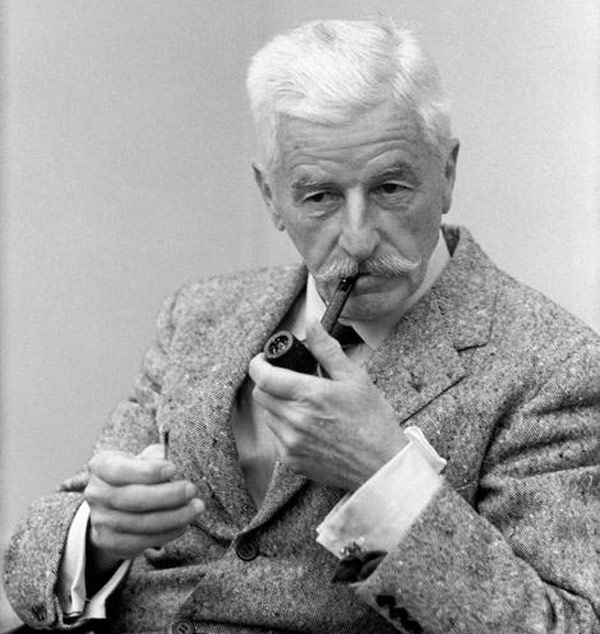“Never be afraid to raise your voice for honesty and truth and compassion against injustice and lying and greed. If people all over the world…would do this, it would change the earth.”
― William Faulkner
Wikipedia:
| Born | William Cuthbert Faulkner September 25, 1897 New Albany, Mississippi, U.S. |
|---|---|
| Died | July 6, 1962 (aged 64) Byhalia, Mississippi, U.S. |
| Language | English |
| Nationality | American |
| Period | 1919–1962 |
| Notable works | The Sound and the Fury As I Lay Dying Light in August Absalom, Absalom! A Rose for Emily |
| Notable awards |
|
| Spouse | Estelle Oldham (1929-1962; His Death) |
|
|
|
| Signature |  |
–
William Cuthbert Faulkner (September 25, 1897 – July 6, 1962) was an American writer and Nobel Prize laureate from Oxford, Mississippi. Faulkner wrote novels, short stories, a play, poetry, essays, and screenplays. He is primarily known for his novels and short stories set in the fictional Yoknapatawpha County, based on Lafayette County, Mississippi, where he spent most of his life.
Faulkner is one of the most celebrated writers in American literature generally and Southern literature specifically. Though his work was published as early as 1919, and largely during the 1920s and 1930s, Faulkner was relatively unknown until receiving the 1949 Nobel Prize in Literature, for which he became the only Mississippi-born Nobel laureate. Two of his works, A Fable (1954) and his last novel The Reivers (1962), won the Pulitzer Prize for Fiction. In 1998, the Modern Library ranked his 1929 novel The Sound and the Fury sixth on its list of the 100 best English-language novels of the 20th century; also on the list were As I Lay Dying (1930) and Light in August (1932). Absalom, Absalom! (1936) is often included on similar lists.
–
Videos
The Life and Work of William Faulkner in America: Pulitzer Prize Winner (1997)
–
Shelby Foote on William Faulkner and the American South
–
Quotes
“Read, read, read. Read everything — trash, classics, good and bad, and see how they do it. Just like a carpenter who works as an apprentice and studies the master. Read! You’ll absorb it.
Then write. If it’s good, you’ll find out. If it’s not, throw it out of the window.”
― William Faulkner–
“You cannot swim for new horizons until you have courage to lose sight of the shore.”
― William Faulkner–
“We must be free not because we claim freedom, but because we practice it.”
― William Faulkner, Essays, Speeches & Public Letters–
“Always dream and shoot higher than you know you can do. Do not bother just to be better than your contemporaries or predecessors. Try to be better than yourself.”
― William Faulkner–
“The past is never dead. It’s not even past.”
― William Faulkner, Requiem for a Nun–
“In writing, you must kill all your darlings.”
― William Faulkner–
“Given the choice between the experience of pain and nothing, I would choose pain.”
― William Faulkner, The Wild Palms–
“…I give you the mausoleum of all hope and desire…I give it to you not that you may remember time, but that you might forget it now and then for a moment and not spend all of your breath trying to conquer it. Because no battle is ever won he said. They are not even fought. The field only reveals to man his own folly and despair, and victory is an illusion of philosophers and fools.”
― William Faulkner, The Sound and the Fury–
“The saddest thing about love, Joe, is that not only the love cannot last forever, but even the heartbreak is soon forgotten.”
― William Faulkner–
“The next time you try to seduce anyone, don’t do it with talk, with words. Women know more about words than men ever will. And they know how little they can ever possibly mean.”
― William Faulkner–
“Perhaps they were right putting love into books. Perhaps it could not live anywhere else.”
― William Faulkner–
“I’m bad and I’m going to hell, and I don’t care. I’d rather be in hell than anywhere where you are. ”
― William Faulkner–
“Don’t be ‘a writer’. Be writing.”
― William Faulkner–
“Memory believes before knowing remembers. Believes longer than recollects, longer than knowing even wonders.”
― William Faulkner–
“Wonder. Go on and wonder.”
― William Faulkner, The Sound and the Fury–
“If a story is in you, it has to come out.”
― William Faulkner–
“Clocks slay time… time is dead as long as it is being clicked off by little wheels; only when the clock stops does time come to life.”
― William Faulkner, The Sound and the Fury–
“I decline to accept the end of man… I refuse to accept this. I believe that man will not merely endure: he will prevail. He is immortal, not because he alone among the creatures has an inexhaustible voice, but because he has a soul, a spirit capable of compassion and sacrifice and endurance. The poet’s, the writer’s, duty is to write about these things. It is his privilege to help man endure by lifting his heart, by reminding him of the courage and honor and hope and pride and compassion and pity and sacrifice which have been the glory of his past. The poet’s voice need not merely be the record of man, it can be one of the props, the pillars to help him endure and prevail.”
― William Faulkner–
“Pouring out liquor is like burning books.”
― William Faulkner–
“It’s a shame that the only thing a man can do for eight hours a day is work. He can’t eat for eight hours; he can’t drink for eight hours; he can’t make love for eight hours. The only thing a man can do for eight hours is work. ”
― William Faulkner

